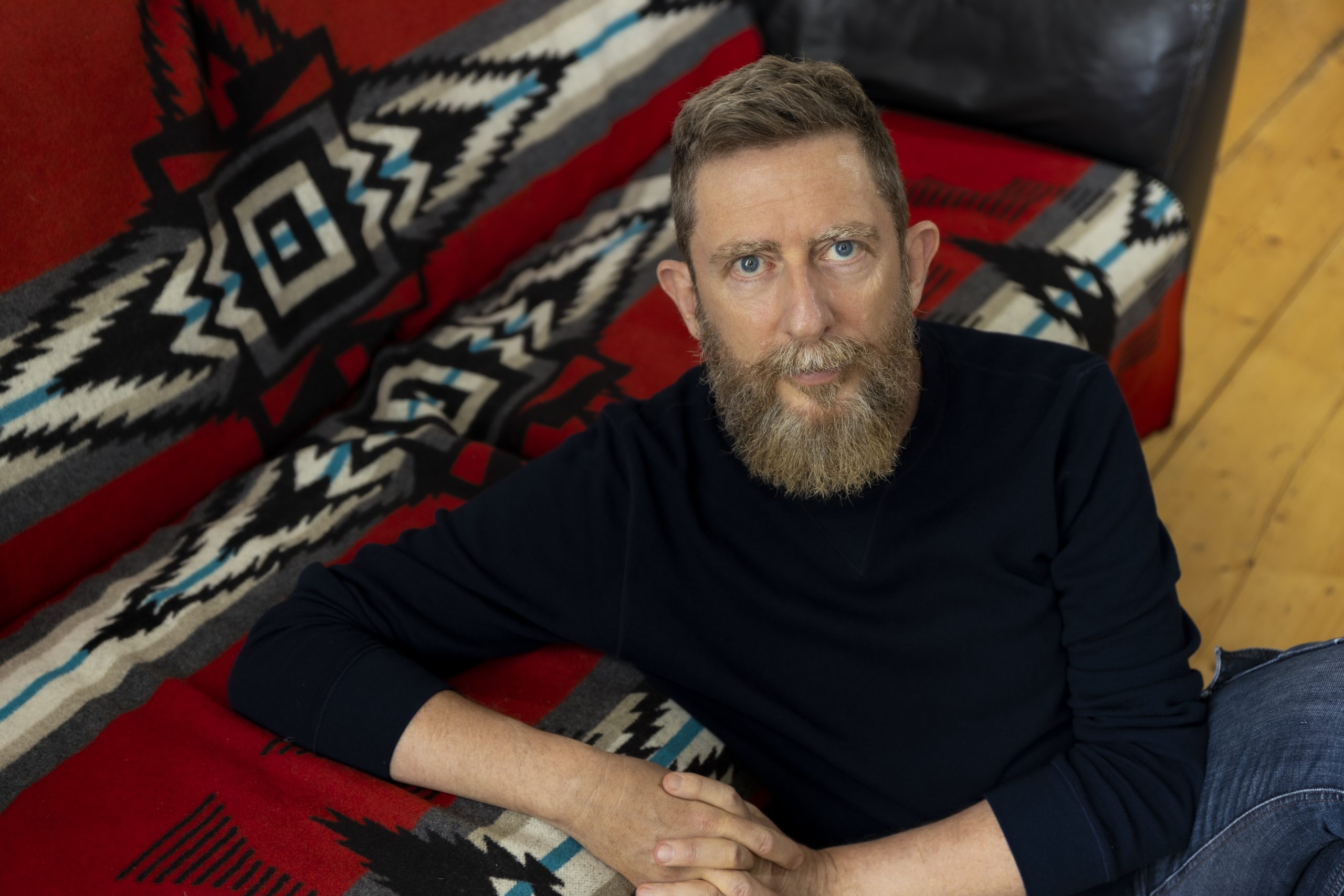‘My parents never told me about our partial Jewish heritage. Years later, a psychic said I came from the Middle East and although I told him he was wrong and that I was a regular Dutch guy, it did explain a lot: the occasional Yiddish words my parents used, our facial features, the infinite silence about what happened during the war. When I confronted my father with this, he confessed that some of our ancestors were Jews who – fearful of persecution – converted to Christianity. It felt like a light was finally being shone on something that always had been in the shade.
Reb Zalman told me that because of what happened in the past, my Jewish soul could not incarnate into my profane body. To purify it and to make me whole again, the rabbi bathed me in an underground lake somewhere in the Rocky Mountains. Towards the end of the ritual I passed out and the rabbi took my head into his lap. I could hear him singing and suddenly I felt this incredibly divine purple light entering me and illuminating my body from within. From that moment on, my life changed drastically.

Image: Elvin Boer
I did not have an easy start. For reasons entirely my own, I am what people might call a late bloomer. My first real sexual encounter with another man was in my mid 20s.
My partner Oscar and I hardly had any gay friends, nor did we frequent gay venues. After my experience in the Rocky Mountains, I felt I was ready to explore my body and my soul on a deeper level. Oscar and I started visiting male-to-male massage groups together and we read books about open relationships. I slowly got into dating other men, he started dating women. I felt a more embodied energy with these gay men than with my bisexual partner. Increasingly, I felt Oscar was a straight guy who just happened to love me. That was no longer right for either of us.
‘I have always loved bearded men and I guess it is no coincidence that beards are signifiers of Jewish masculinity’
We broke up and I started to live a gay life. I was forty-six. These days, I have different lovers and partners. With every man, I discover and explore a different side of myself. I can be submissive or dominant, the caregiver or cared for. Sex can be kinky and wild or just sweet. In every encounter and in every relationship, a different me pops up, like a kaleidoscope.
I have always loved bearded men and I guess it is no coincidence that beards are signifiers of Jewish masculinity. There is this image of the Jewish father – bearded and with broad shoulders – who is a good father, who takes care of his children and protects them. To me, a beard is also about this sense of familiarity, of safety and belonging.
For me, being a man means being in charge, but also being receptive, being open and being able to surrender. Sometimes I go to an Orthodox synagogue and find myself amidst these male bodies, this community of fathers and brothers and sons, holding each other and praying together. A vulnerable and holy moment, but, for me, also a very erotic one.
‘Connecting to our ancestors can give us a new sense of hope and of belonging’
Every minority has its own history, its own programming and its own trauma. An important question for the queer community is: am I part of creation? For thousands of years now we are being taught that we are a mistake, that we are not welcome and should go to hell. How can we repair this? How can we create a sense of belonging in this world that really grounds us?
I think the answer lies in a connection with our ancestors. Each of us has LGBTQ ancestors, even if we do not know their names or faces. For a retreat for gay, bi, trans and queer men in Berlin, I created an embodied ritual where participants experience the lineages of queerness as they stretch out through time. Connecting to our ancestors gives us a new sense of hope and of home. Through understanding where we come from, we can discover unexpected roots and solid ground.’
